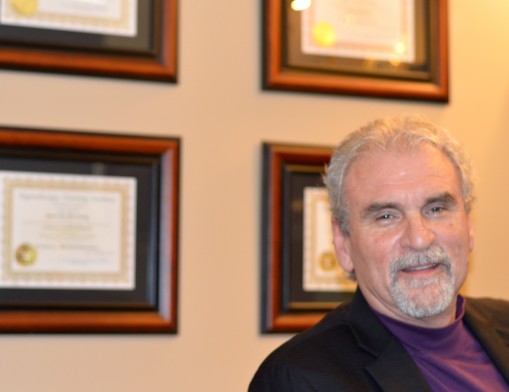
Clinical Hypnotherapist James Browning is dedicated to helping people. From working through anxiety to helping with weight loss, he assures that his methods are helpful to clients from various backgrounds.
For James Browning, clinical hypnotherapy is more than a career - it’s a way of life.
Before opening Browning Clinical Hypnotherapy three years ago, he spent decades as a manager in the media business, but later discovered a passion for helping people. This led Browning to an advanced education at the oldest hypnotherapy school in the United States.
“I love what I do,” Browning said. “No work I’ve ever done has rocked my world and been as richly satisfying as my hypnotherapy practice”.
Browning has been interested in hypnotherapy since he bought his first book on the subject when he was 14. He has continued learning about the methods and has used self-hypnosis throughout his life.
“I used self-hypnosis for improving my own life and getting on a better track,” Browning explains. “It helped me quit smoking. I used self-hypnosis recordings and at the same time I was helping other friends. So that’s how I learned it works.”
Browning has been managing people and his own professional time since the early age of 23. This experience helped make the transition to self employment a smooth one. According to Browning, the flexibility he gets from owning and operating his own practice is ideal. He sets his own schedule to allow for volunteer work for a local hospice organization whose patients he helps with anxiety and severe pain management. Rarely does he turn anyone away from his practice and those demonstrating genuine need but having limited resources may receive his help on a sliding scale.
Browning assures regardless of a person’s circumstances, no one goes away worse off after attending a hypnotherapy session. The vast majority goes away a lot better to greatly improved after a few sessions. Hypnotherapy has also been proven effective for tobacco cessation, managing weight, headache reduction, pain management and those suffering from PTSD.
For those who think they can’t achieve hypnosis, they’ve been living based on a myth, according to Browning.
“I love somebody who tells me they can’t be hypnotized,” Browning said. “They’re among the easiest. Any absolute belief like that can be turned around in hypnotherapy.”
And for people worrying about what they may say or do while in a session, Browning assures that a patient wouldn’t do anything in hypnosis that they wouldn’t do outside of it.
“It’s a natural state. Have you ever driven a car for a few minutes and couldn’t remember it?” Browning asked. “That’s stage one. Anytime your subconscious mind is somewhere else and you’re functioning at kind of an automatic level, you’re in hypnosis.”
Browning’s clients will often walk in with a certain problem and eventually discover a memory or feeling that leads their mind down a totally different path. For example, a client could come in for weight management, but after a few sessions, discover an unhappy marriage where they subconsciously used weight gain to avoid intimacy. Dealing with any underlying issues often requires a psychologist, especially in the cases of trauma or abuse. During a session, Browning helps patients with the feelings in the subconscious, but will refer them to a psychologist to work through their new discovery.
For those unsure if hypnotherapy is right for them, Browning offers a free 30-minute consultation by appointment where he gets to know about a potential client to see if hypnosis is a good fit for a client’s issues. Browning’s clients will attend anywhere from three to five sessions to get the most results out of clinical hypnotherapy and will often come back for other behaviors and habits they’d like to fix or improve.
See more about Clinical Hypnotherapy: A Natural Solution:
https://www.valuenews.com/clinical-hypnotherapy-a-natural-solution-news-article_4173

